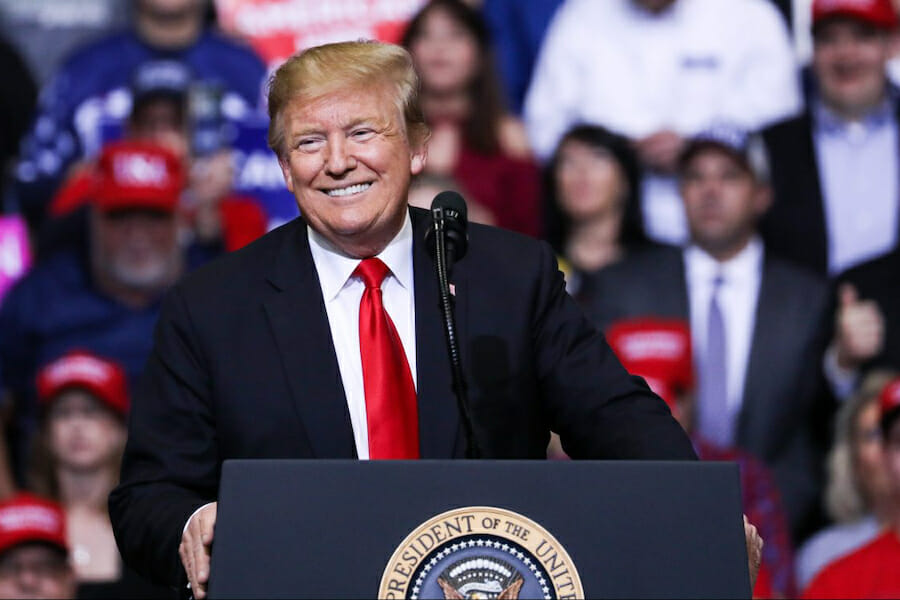
Politics
The Mueller Probe and Liberals’ Cognitive Dissonance
In the early 1950s, the gurus of a cult that postulated the existence of UFOs set the date of the end of the world at December 21, 1954. At the same time, to reassure their followers, the pundits promised that, right before the cataclysm, UFOs would arrive at our planet to carry them all to a safe place in the universe.
Finally, the UFOs didn’t land – and, as we all know, neither did life on Earth disappear on the fateful date. Yet, instead of admitting the failure of their prophecy, the cult’s gurus contended that, even though the event didn’t occur as announced, it would nonetheless take place at a later, not distant point in time.
That story inspired the social psychologist Leon Festinger to posit his “cognitive dissonance” theory, which deals with the discomfort experienced by individuals when their beliefs and expectations are invalidated by facts – and with their ensuing reluctance to adjust or abandon their beliefs accordingly.
Nowadays, liberals seem to be going through that kind of embarrassment, in particular as regards the outcome of the probe carried out by the Special Counsel Robert Mueller into possible collusion between Donald Trump’s campaign and Russia.
Liberals were convinced that the outcome of the probe would vindicate their accusations of collusion – thereby laying the ground for impeaching Trump.
And yet, quoting directly from the Mueller report, the summary given by Attorney General William Barr states that “the investigation did not establish that members of the Trump campaign conspired or coordinated with the Russian government in its election interference activities.”
For sure, the Attorney General’s account will be subject to scrutiny and controversy in the days (or months) to come. The fact is that, contrary to liberals’ yearnings, the special counsel did not find evidence to establish a charge of collusion between Russia and Donald Trump.
The outcome of that probe, however, did not deter the House Intelligence Committee Chairman, Rep. Adam Schiff (D-CA), from persistently, or stubbornly, asserting that there is still “significant evidence of collusion.” In a similar vein, Rep. Raja Krishnamoorthi (D-IL), interviewed at MSNBC, boldly affirmed: “What I am saying is there might be evidence of collusion.”
These reactions present a striking similarity with the aforementioned gurus’ reluctance to admit the failure of their end-of-the-world prophecy.
As a matter of fact, the Mueller conclusion should not have come as a surprise. Indeed, as pointed out by defense and foreign-policy analyst Ted Galen Carpenter, writing in The National Interest, not a few of the policies and measures taken by Donald Trump run counter to Putin’s interests and, therefore, could not have been taken by Trump had Putin owned him (as would have been the case had the collusion narrative been true).
The decision to withdraw from the INF treaty, the approval of two major sales of lethal weapons to Ukraine (something that former President Obama did not do), the program to train Ukrainian troops, the endorsement of the admission of Montenegro to NATO and the intensification of NATO war games in the periphery of Russia (Eastern Europe and the Black Sea) figure among the measures referred to by Galen to dismiss the collusion parable.
For this reason, some liberals from the mainstream media – such as New York journalist Michael Tracey – had expressed words of caution against placing bets on the Muller probe. Yet, entangled in their cognitive-dissonance dystopia, liberals continued to firmly believe, as an act of faith, in the collusion narrative and went as far as accusing their skeptical peers of playing into the hands of Donald Trump.
And now, after and in spite of the main conclusion of the Mueller investigation, the tendency that prevails within the mainstream media, as summarized by Hunter DeRensis in The National Interest, is to double down and keep defending the collusion narrative.
Another avatar of liberals’ unwillingness, or inability, to accept the Mueller findings relates to the reaction of Washington Post columnist Anne Appelbaum: since existing laws do not give room for impeaching President Trump for his (alleged) mischievous conduct, then – Appelbaum proposes – change the laws. There have been other instances where, rather than accepting defeat, liberals have called for modifying the rules of the game so as to better fight against Donald Trump: dismantling the Electoral College and packing the Supreme Court are two cases in point.
The economy is another area in which liberals are wrestling with cognitive dissonance syndrome.
Indeed, in the same manner, that the cult’s gurus had predicted the end of the world, so House Democratic Leader Nancy Pelosi qualified Trump’s Tax Cuts and Jobs Act as “the end of the world” and further gave it the epithet of “Armageddon.” And yet, in the same manner that mankind did not end as expected by the cult of UFO-believers, so Nancy Pelosi’s prediction of a Trump-triggered economic Armageddon has failed to materialize. And finally, in the same manner, that the UFO gurus stuck to their end-of-the-world prophecy by announcing that it will take place at a different date from the one they had announced, so liberal economic gurus insist that a Trump-triggered economic Armageddon is just a matter of time.
For sure, a recession will sooner or later come to shake the world economy if only because the world economy is giving signs of strain: Europe and China (two heavy-weights in the global arena) are registering tepid economic growth. The slowdown in those two major poles of economic activity has nothing to do with Trump’s economic policies, but this fact doesn’t prevent liberals from attributing beforehand the next recession, totally or partially, to Trump.
To summarize: in both of the Mueller findings and of the state of the U.S. economy, liberals’ expectations and prophecies have not been corroborated by facts. But never mind: if reality collides with liberals’ beliefs, it is a reality that fails – or so they seem to think. This is cognitive dissonance at its best – or rather, at its worst.
Not an optimal tack to convince and attract swing voters, to say the least.

